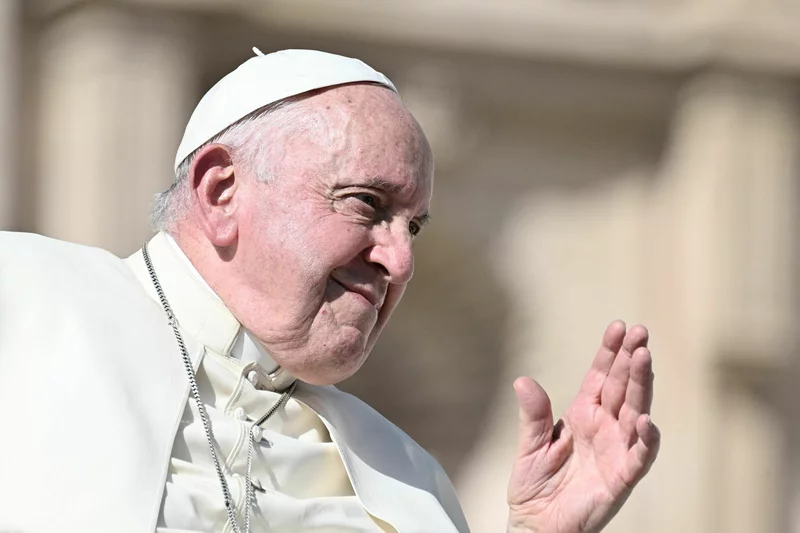Embark with me on a transformative journey that spans almost two decades. From my grad school days at Loyola Marymount University to the recent groundbreaking decision by Pope Francis to approve blessings for same-sex couples, there has been hopeful changes. This narrative is marked by challenges, triumphs, and a profound commitment to fostering understanding and dialogue. This is the story of queer faith and social justice.
A Foundation in Theology and Queerness
In the halls of Loyola Marymount, I pursued my graduate studies. Here, I delved into general theology, queerness, mental health, and my personal favorite, liberation theology. This multifaceted approach laid a deep foundation for my future work.
Influential Theologians and Their Impact
I engaged with the works of inspiring theologians such as Marcella Althaus-Reid, Patrick Cheng, and Chris Glaser. Meeting Mr. Glaser and discussing his experiences and writings in depth was a privilege. Their perspectives significantly shaped my understanding. I embraced the liberating principles of theology, coupled with a commitment to justice and inclusivity for queer folks. This intersectional dialogue pushed boundaries, challenged societal norms, and highlighted the transformative potential of embracing diverse identities within the framework of faith.
Marcella Althaus-Reid’s “Indecent Theology”
Marcella Althaus-Reid’s “Indecent Theology” was revolutionary. She encouraged me to challenge traditional Christian norms. Her work advocates for a theology that embraces the experiences and sexualities of marginalized groups, including queer individuals. Her bold approach to theology pushed me to consider how faith can be more inclusive and transformative. Althaus-Reid’s perspectives were instrumental in shaping my views on how theology can intersect with and support the LGBTQ community.
Patrick Cheng’s “Radical Love”
Patrick Cheng’s “Radical Love” was another guiding force. His book explores the intersection of queer experiences and Christian faith. Cheng celebrates diversity and inclusivity, proposing that radical love is at the heart of Christian theology. His work provided a framework for understanding how faith can embrace queer identities without compromising on religious integrity. Cheng’s insights helped me to see how theology can serve as a bridge between the LGBTQ community and religious institutions.
Chris Glaser’s “Coming Out as Sacrament”
Chris Glaser’s “Coming Out as Sacrament” resonated deeply with me. He frames the act of coming out as a sacred journey within a queer theological context. Meeting Glaser and discussing his work in person deepened my appreciation for his approach. He suggests that coming out is not just a personal revelation but a spiritual one, transforming both the individual and the faith community. His perspective reinforced the idea that embracing one’s true self is a divine act, enriching both personal faith and communal worship.
Sharing Insights and Gaining Recognition
Armed with liberation theology, I wrote and spoke passionately. Eventually, I earned an invitation to share my insights on a larger platform. I presented ‘Jesus Christ as Grand Marshal of Queer America’ at Boston College. This experience was both challenging and enlightening. The fact that I, a graduate of Loyola Marymount, was invited by Boston College, a prestigious institution with deep Catholic roots, to address such a comprehensive topic was a significant acknowledgment of the evolving landscape within academia. It revealed a potential for a more open and inclusive stance within the hierarchy of the church.
Conversations Within the Church
Conversations with priests, nuns, and faculty from Loyola and Boston College indicated a more open perspective than was publicly acknowledged. Perhaps the laity were not yet ready to fully embrace these changes. This nuance emphasizes that the journey toward acceptance and understanding involves a complex interplay of various perspectives within the Church.
Pope Francis’ Monumental Step of Inclusion
Fast forward fifteen years, and we witness Pope Francis’ recent decision to approve blessings for same-sex couples. This monumental step by the Vatican signals progress. It also prompts reflection on the dynamics within the ecclesiastical council and the clergy. Pope Francis has been known for his more inclusive approach to the LGBTQ community, which is a significant shift from traditional stances. His decision is a testament to the ongoing transformation within the Church and highlights the importance of continued dialogue and openness.
A Microcosm of Progress
In the larger context, this journey serves as a microcosm of the progress made over time in challenging societal norms and pushing for inclusivity. These liberating principles, coupled with an unwavering dedication to justice and inclusivity, continue to guide us as we navigate the complexities of faith, identity, and societal expectations. The steps taken by the Church, inspired by theologians like Althaus-Reid, Cheng, and Glaser, reflect a broader societal movement towards equality and understanding
Join the Journey of Queer Faith and Social Justice
Join me in celebrating this journey of faith, inclusion, and social justice. Engage with these transformative ideas and become part of a movement that embraces diversity and champions equality within the framework of faith. Together, let’s continue to push the boundaries and foster a more inclusive and understanding society. By learning from these theologians and supporting progressive changes in the Church, we can create a more just and compassionate world.

